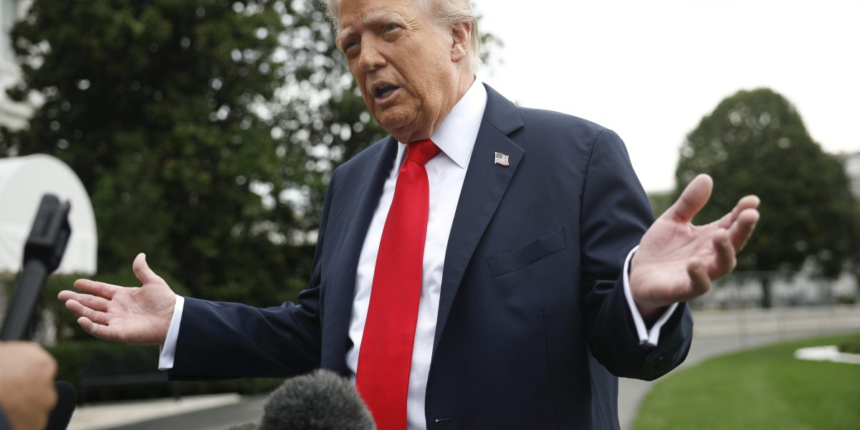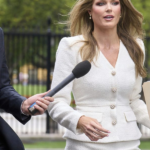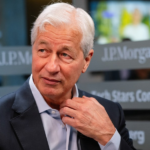The Yale Chief Executive Leadership Institute’s CEO forum gathers top political leaders with Fortune 500 CEOs for a Chatham House rules discussion where direct quotes are off the record. In Washington DC this week at the 155th gathering, as clouds swirled around the Capitol building just steps away, senators from both parties and some top Trump administration officials joined us. They had to face down the near unanimous verdict from over 100 top business leaders, representing some of the world’s largest companies and most iconic brands: Trump’s policies aren’t working. These opinions were all about business results, by the way: the reasoning was independent of personal politics or industry sector, it always came back to the bottom line.
This widespread sentiment is directly counter to the heavily trumpeted “Dear Leader” tributes of just a handful of tech titans, who are decidedly not representative of the leadership class.
Two-thirds of the CEOs surveyed at our event said that U.S. tariffs have been harmful to their businesses. They estimate that 80% of the tariffs have been shared equally between domestic firms and U.S. consumers, with the remainder shouldered by foreign counterparts. Businesses have attempted to limit the cost of tariffs from being passed on by rerouting supply chains, reworking operations, instituting hiring pauses, or administering large-scale layoffs. But they have limited options left as inventories built up before the tariffs took effect continue to be depleted.
One CEO of a major U.S. manufacturing company explained to the group: “If the U.S. government wants to help protect certain industries, they need to help those industries be successful. It is not just putting a bunch of tariffs in place and assuming those industries are going to get moved to the U.S. There have to be incentives … Consumers want products to be low-cost … power tools, hand tools, clothing, sneakers … Does it really make sense to be manufacturing all that in the United States? I do not believe it does. I believe there are certain industries where it does make sense … but it is not realistic to expect every industry in the world to be manufacturing products in the U.S. for the U.S.”
Unfortunately, rebuilding at home does not seem to be the solution Trump had hoped for. Fewer than half of the CEOs reported having increased investments in domestic manufacturing and other infrastructure since “Liberation Day,” and even fewer said they expected the results of their capital investments to be material.
CEOs at our event repeated stories of similar quandaries. A well-known business leader with a significant manufacturing footprint in the U.S. and abroad told the group that while they want a level playing field and support the president’s goals in that regard, their company can only offset some of the tariff-related cost increases through operating efficiencies and tax benefits from the recently passed “One Big Beautiful Bill.” They added that for now, the cost of tariffs still far exceeds the benefits provided by the Trump administration, drawing murmurs of agreement from the room.
Just as frustrating for CEOs is the lingering sense that this entire house of cards might collapse at any moment due to a court reversal. Nearly three-quarters of all executives surveyed said they the courts are correct in saying Trump’s tariffs are illegal as implemented. If the Supreme Court agrees with those business leaders, then corporate America’s plans will be thrown into disarray again amid halting uncertainty.
Another leading CEO in the manufacturing sector, whose products are primarily made in America, explained just how debilitating this kind of uncertainty is for their company: “Manufacturing has always been a big advantage for America. So, I think bringing back manufacturing is important. The administration has it right … [We need a level] playing field in the United States … But I am always worried about what the government is going to do next. It seems like the tariffs have simmered down, but in reality, where manufacturers import from is Mexico, Canada, and China. None of those [trade deals] is settled. So, if you want to make a change in your business, you recognize tariffs are going to change in 90 days or 120 days. And I don’t want to look like a fool! So, I’m going to hold back.”
The worries of the group also extended beyond their business operations. More than three-quarters said Trump is not acting in America’s best interests by pressuring Jerome Powell to cut interest rates. The majority said they believe the president has done lasting damage to the independence of the Federal Reserve, and over 60% said they felt his recent actions of politicization are to blame.
The head of a major U.S. multinational investment bank discussed how perplexing it is to see the administration pursue an America-first agenda but then attack the independence of the Fed: “If you look at all the things that the President and this administration are doing, all of them are in service of keeping the U.S. dollar as the world’s reserve currency … The only thing that I have not been able to square with this administration is the attack on the Fed’s independence. That is such a critical part of making sure that the U.S. dollar remains the world’s reserve currency, because people trust that the Fed’s independence is the one area that is outside the presidential influence.”
CEOs told us they still believe in the promise of the U.S. and its capitalist system, but it’s hard to ignore the Trump administration’s drift toward a quasi-socialist statism, seizing ownership from private shareholders, dictating staffing, and selectively blocking moves into strategic markets based upon politics and kickbacks. Nearly three-quarters of CEOs surveyed said they were confident that U.S. free-market capitalism can compete with China’s socialist market economy in the global AI contest, and they expressed a near-unanimous discontent as the Trump administration has veered away from the capitalist system.
Such flirtation with state-driven capitalism and protectionism not only leaves CEOs facing heightened uncertainty, fearfully wondering what comes next, but also providing China an opening with their suppliers and customers. At our CEO forum in March, 85% of business leaders viewed U.S. government uncertainty as a gift to China in terms a competitive opportunity. They said this week that this has proved true over the last six months.
Similarly, in March, we asked whether the U.S.-Russia-Ukrainian peace talks happening that week in Saudi Arabia would lead to a peace agreement. Nearly three-quarters said that would happen within six months. Regrettably, over three-quarters of CEOs now see relations with Russia and Ukraine as worse since Trump took office. A similar proportion of executives said they thought we are at risk of losing the momentum gained in the Middle East from the Abraham Accords.
After nine months in office, there is a clear desire to return to a respect for the balance of powers in government, to reinforce international allies, to fortify independent, objective expertise of economists and scientists, to encourage freedom of voice, to stop bullying countries, cities, and companies into resentful, uneconomical compromises. In short, CEOs are calling to make America, America again.
When one commenter compared MAGA to the Maoist movement, there wasn’t an outcry of disagreement. Quite the opposite.
The opinions expressed in Fortune.com commentary pieces are solely the views of their authors and do not necessarily reflect the opinions and beliefs of Fortune.









